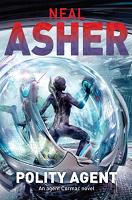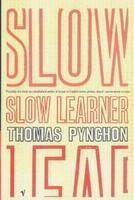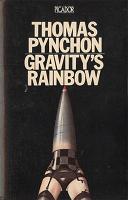 Polity Agent is the 4th (out of 5, so far) book in Neal Asher's Agent Cormac series; which in itself is part of his Polity books (13 novels as this is written). It's by no means a stand-alone novel – you need to have read the previous 3 books in the series, at least (that would be Gridlinked, The Line of Polity, and Brass Man), as the larger story arc carries straight through this book into the 5th in the series, Line War.
Polity Agent is the 4th (out of 5, so far) book in Neal Asher's Agent Cormac series; which in itself is part of his Polity books (13 novels as this is written). It's by no means a stand-alone novel – you need to have read the previous 3 books in the series, at least (that would be Gridlinked, The Line of Polity, and Brass Man), as the larger story arc carries straight through this book into the 5th in the series, Line War.
Beware that the below contains, by its very nature, spoilers for the earlier books. Go read these first, they are fun!
Polity Agent picks up where Brass Man left off in terms of the overall story arc. The book itself kicks off with a runcible transfer from the future (yes, it's possible. Yes, the energy requirements are such that the price is, in nearly all cases, completely out of question) to evacuate the expedition returning the Maker to its own culture (its ship was destroyed by Dragon a few books back). Something tries to come through the runcible after the survivors, and the gate won't close – the station involved (Celedon), and Jerusalem (yes, Jain tech features greatly) only just about manage to dump the gate into the next sun in time. What we learn is that the Maker civilization thought they understood Jain technology, and used it. What the expedition found was that the Maker civilization has been wiped out by the Jain, and that the space is seeded with Jain nodes. Not a good place to be in, as Agent Cormac (who has lost part of his memory due to the events at the end of Brass Man) comments.
Meanwhile, in the Polity, the solid effluent and the air ventilation device feel a severe mutual attraction, too. Thellant N'komo, a separatist, is given (literally thrown, so he has to catch and thus touch it) a Jain node by the mysterious 'Legate'. There are others – we are introduced to Orlandine, an overseer on a Million-year project to create a Dyson Sphere, who is also given (in a more civilized manner) a Jain node, and who has the ability (see the Makers above) to establish how it works, what it does, and to safely use the technology.
I won't spill more of the actual story – this is now rather action based than the original 'secret service agent' approach of the beginning of the series. The story drives forward quite relentlessly, I don't recall any real 'dull' moments. I recall missing bus and tube stops, though...
What struck me was the complexity of the setup – there are many pieces on the playing field, and, for Asher, an inordinate number of threads to follow. Not that this is bad, these stories improve with added complexity (see Prador Moon for a not-so-great example of what happens without). This is a highly entertaining story, with some key developments in regards to Horace Blegg (aka Agent Prime Cause) and Ian Cormac – we learn much more of Blegg's history (the book is littered with 'retroacts' telling key moments from his long long life), and we continue our trip towards fully discovering who/what Cormac really is, and ECS's role in this.
The chapters start with the usual quotes providing info dumps, history, and selected commentary by self-appointed historians, which helps a lot with the feel for the universe, and the specifics for the story at hand.
A must-read for Asher fans working their way through the Cormac series (which definitely must be read in order) – check this for how all the Polity books relate to each other on a clear time line.
More Neal Asher
Title: Neal Asher
Author: Neal Asher
Series: Agent Cormac
Series Number: 4
Reviewer: Markus
Reviewer URL: http://thierstein.net
Publisher: Tor/Pan MacMillan
Publisher URL: http://www.panmacmillan.com
Publication Date: 2007
Review Date: 120521
ISBN: 9780330441520
Price: UKP 7.99
Pages: 562
Format: Paperback
Topic: SF
Topic: Space Opera














